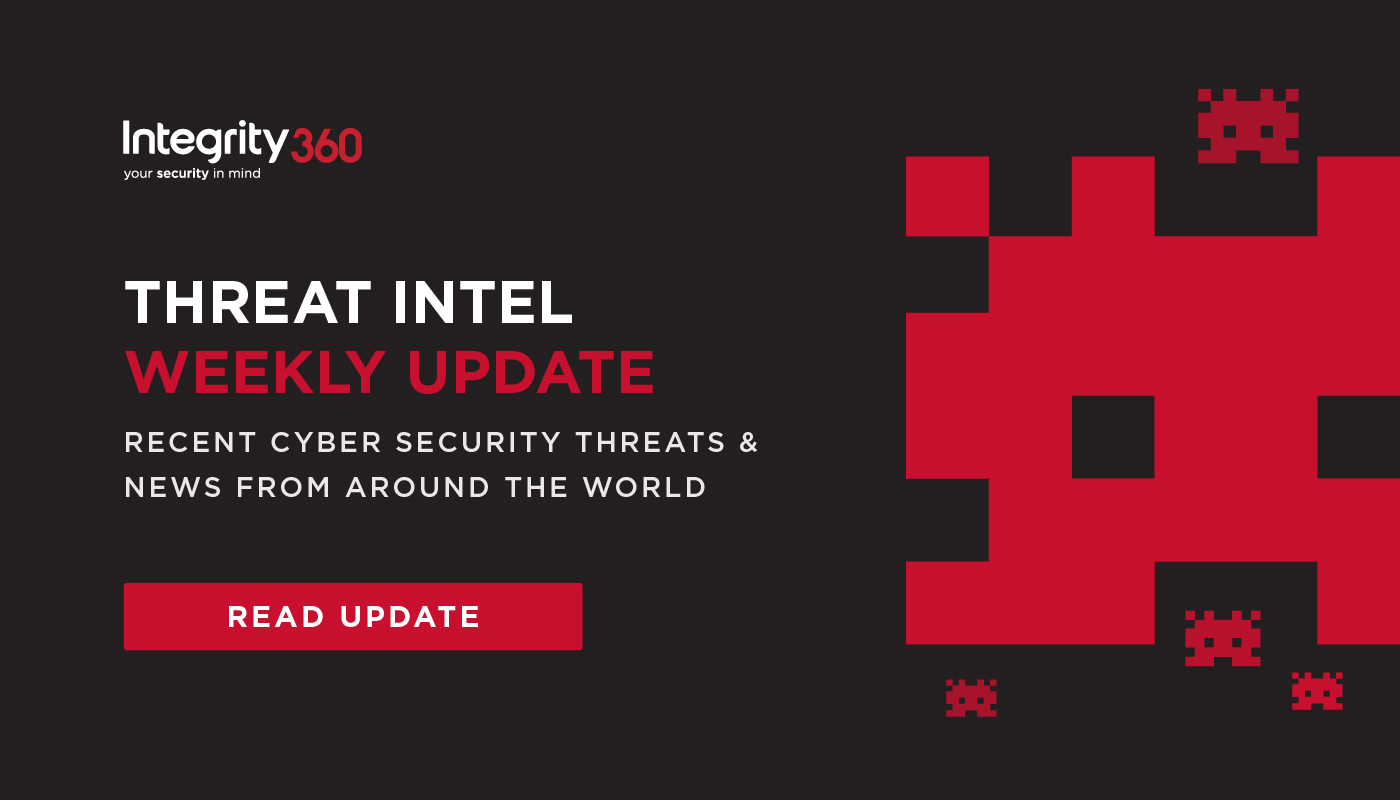Weekly Cyber News Roundup – December 12th to 16th 2022
This week our incident response team warns that smishing scams are on the rise in Ireland and we take a look at some of the biggest cyber related news stories.
Our Managed Detection and Response Services provide continuous monitoring from a team who’ll neutralise any breaches at speed...
Gain access to malware experts to quickly contain threats and reduce future exposure to attacks...
Integrity360 has been recognised as a Gartner Representative Vendor.
Many organisations are choosing CyberFire MDR to strengthen their defences. Discover how it can protect your business in our brochure.
Cyber attacks often seem faceless, but hidden behind the headlines of financial loss and technical details there are very real human stories.
In 2025, we’re witnessing a shift in how ransomware operates, who it targets, and the consequences of falling victim.
Stay ahead of the latest cybersecurity industry developments, advancements and threats, and understand how you can best protect your organisation.
Do you know what your company’s network vulnerabilities are? Businesses that invest in penetration testing do.
If your business handles credit card data, PCI DSS compliance isn’t optional—it’s critical. From retailers and e-commerce platforms to service providers and financial institutions, securing credit card data is critical to customer trust and preventing fraud.
Stay informed with the latest cybersecurity news with our weekly threat roundups.
Confused about cybersecurity? Our A-Z Glossary of terms can help you navigate this complicated industry.
For many small and mid-sized businesses, cybersecurity can feel overwhelming.
SOC 2 certification reflects Integrity360’s continued investment in strengthening cyber resilience for clients across highly regulated and high-risk industries.
Leading Canadian cybersecurity services provider Advantus360 joins Integrity360 creating the group’s first hub in North America
Posts about:

This week our incident response team warns that smishing scams are on the rise in Ireland and we take a look at some of the biggest cyber related news stories.

In 2023, it will be more critical than ever for businesses to prioritise the protection of their data and networks to safeguard against cyber threats. This will require a focus on implementing robust security measures, regularly monitoring and updating those measures, and educating employees on best practices for protecting company assets and data.

Ransomware and state affiliated hacktivist groups dominated the cyber news headlines this week.

2022 has been a difficult year for cyber security, with many organisations struggling to get to grips with the security challenges of working safely in a decentralised workplace. As the Cyber Security Breaches Survey highlights, 39% of businesses report having cyber security breaches or attacks in the last 12 months.

The World Cup has kicked off and as predicted the surge in tournament related phishing campaigns has appeared. You may also have noticed a rise in the number of scam emails and texts relating to the Black Friday and Cyber Monday sales too.

More and more organisations are realising the benefits of achieving compliance with an international security standard, and more specifically the ISO27001.It’s a standard that was first released in October 2005sowhy is thisstill relevant today?– It continues to be largely drivenby client requirements, the desire for a competitive advantage or simply wanting to ensure the most robust security practices for the company and its stakeholders.

The Covid-19 pandemic changed the way we work in the UK and Ireland forever. As companies experimented with remote working to maintain productivity, many employees became accustomed to the idea of working from home and enjoying a greater work-life balance.

The cybersecurity world is preparing for three major events in the calendar over the coming weeks. The FIFA World Cup, Black Friday and Cyber Monday, all events that typically result in increased activity by cyber criminals as they seek to exploit shoppers and football fans.

Cyber criminals and other threat actors are looking to kick their activities into a higher gear as three major upcoming events provide the perfect opportunities to launch phishing and other cyber-attacks.

It’s been another busy week in the world of cyber security. The ongoing war in Ukraine has seen NATO warn of a growing cyber threat, and all eyes were on the US for signs of any attacks aimed at causing disruption to the mid-term elections.

While many organisations spend thousands on preventative cyber security tools, many make the mistake of overlooking the fact that cyber criminals are spending less time relying on brute force to gain access to protected information and more time on manipulating or bribing employees into giving up personal information.

This week we learned how one ransomware group is responsible for the vast majority of ransomware attacks this year and a new report from the NCSC highlighted the true scale of cybercrime in the UK.